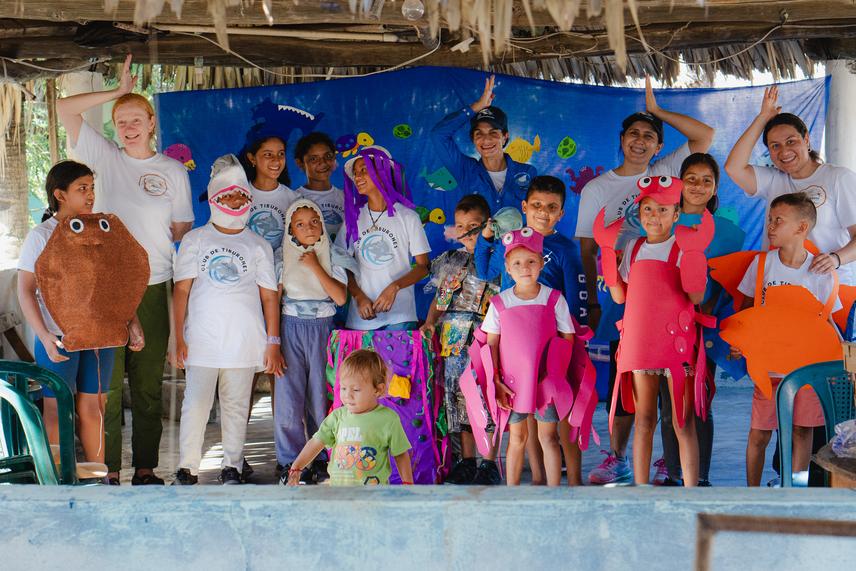Karen Estefanía Sapón Morán
This project aims to enhance marine conservation awareness and action among children and youth in the coastal communities of Sipacate and Las Lisas, Guatemala, focusing on the protection of sharks, rays, mangroves, and addressing pollution and climate change. By engaging local schools and communities, the project seeks to build lasting environmental stewardship through education, youth leadership, and community involvement.

Theatre play performed by the Shark Club. © Fundación Mundo Azul.
Guatemala’s Pacific coast features rich marine ecosystems vital for biodiversity and local livelihoods. Despite some areas being legally protected, enforcement is weak, and threats such as overfishing, habitat loss, and pollution continue to endanger sharks and rays. This project targets five educational centres across Sipacate and Las Lisas to empower at least 350 students with knowledge and skills to actively promote marine conservation.
Key activities include delivering interactive workshops on marine biodiversity, establishing a youth-led Sharks Club with 20 members who will lead conservation actions, and creating two educational murals in public spaces to serve as permanent awareness tools. The project also organises the Blue Pacific Festival, an inclusive community event that fosters broad participation and shared responsibility for coastal ecosystem protection.
Fundación Mundo Azul coordinates the project, collaborating with local schools, families, and municipal governments to ensure community engagement and sustainability. Through a participatory, action-based learning approach, youth will challenge negative perceptions of sharks, lead peer education, and advocate for conservation in their communities.
By integrating education, community events, and visual arts, the project addresses gaps in conservation enforcement and promotes a culture of marine stewardship that benefits both biodiversity and coastal livelihoods. The initiative also leverages digital platforms to share progress and maintain public interest, aiming for long-term impact beyond the project’s duration.